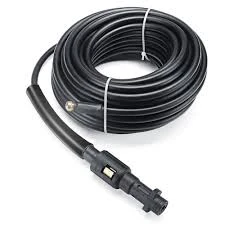brake lines on car
Understanding Brake Lines on Cars A Vital Component for Safety
When it comes to vehicle safety, the braking system is undoubtedly one of the most critical features that should not be overlooked. At the heart of this system lies an often underestimated component the brake lines. These lines play a pivotal role in ensuring that your vehicle can stop effectively, and understanding their function and maintenance is essential for every car owner.
What Are Brake Lines?
Brake lines are a series of tubes made from steel or reinforced rubber that transport brake fluid from the master cylinder, located near the brake pedal, to the brake calipers at each wheel. The brake fluid is crucial as it transmits force from the driver's foot on the brake pedal to the brakes themselves, allowing the vehicle to slow down or stop.
There are mainly three types of brake lines metal brake lines, rubber brake hoses, and braided stainless steel lines. Metal brake lines are typically used in the vehicle's structure due to their durability and resistance to damage. Rubber hoses are commonly found in areas with flexing, such as where the wheels move up and down. Braided stainless steel lines, although often more expensive, offer enhanced durability and responsiveness and are favored by performance enthusiasts.
The Importance of Brake Lines
The importance of brake lines cannot be overstated. They are integral to the functionality of the entire braking system. When you press down on the brake pedal, you create pressure in the brake fluid, which travels through these lines to activate the brakes. If there is a problem with the brake lines—such as leaks or blockages—the brake system will not function properly, which can lead to severe consequences, including brake failure.
Maintaining brake lines is crucial for ensuring optimal performance and safety. Over time, brake lines can corrode due to exposure to road salt, moisture, and other environmental factors. This corrosion can lead to leaks, which decreases the amount of brake fluid in the system and compromises braking ability. Regular inspections by a qualified mechanic can help identify potential issues before they lead to a complete failure.
Signs of Brake Line Issues
As a car owner, it's vital to be aware of the signs that might indicate problems with your brake lines. Common symptoms include
brake lines on car

1. Soft or Spongy Brake Pedal If you notice that your brake pedal feels soft or sinks to the floor when pressed, this could indicate a leak in the brake lines.
2. Brake Fluid Leaks Spotting puddles of fluid beneath your vehicle, particularly clear or yellowish fluid, could be a sign of a leak in the brake system.
3. Unusual Noises Grinding or squeaking noises when applying the brakes can indicate that the brake pads are worn down, but it can also signify issues with the brake line pressure.
4. Warning Lights Many modern vehicles have warning lights on the dashboard that signal issues with the braking system. Ignoring these warnings can be dangerous.
Maintenance and Replacement
To ensure your braking system functions effectively, regular maintenance of your brake lines is essential. This involves checking for any signs of wear or damage, ensuring that all fittings and connections are secure, and inspecting for any fluid leaks.
If you suspect that your brake lines are damaged or corroded, it’s important to have them replaced by a professional. Brake line replacements are not overly complex, but they do require specialized knowledge and tools. Attempting to fix brake lines without proper expertise can lead to severe safety risks.
Conclusion
Brake lines are a crucial part of your car’s braking system. Understanding their function, knowing the signs of potential problems, and committing to regular maintenance are all essential for ensuring your vehicle remains safe on the road. Whether you are a seasoned car enthusiast or a casual driver, taking care of your brake lines and understanding their significance can make a substantial difference in your overall driving experience and safety. Don’t overlook this vital component; your life may depend on it.
-
Ultimate Spiral Protection for Hoses & CablesNewsJun.26,2025
-
The Ultimate Quick-Connect Solutions for Every NeedNewsJun.26,2025
-
SAE J1401 Brake Hose: Reliable Choice for Safe BrakingNewsJun.26,2025
-
Reliable J2064 A/C Hoses for Real-World Cooling NeedsNewsJun.26,2025
-
Heavy-Duty Sewer Jetting Hoses Built to LastNewsJun.26,2025
-
Fix Power Steering Tube Leaks Fast – Durable & Affordable SolutionNewsJun.26,2025

